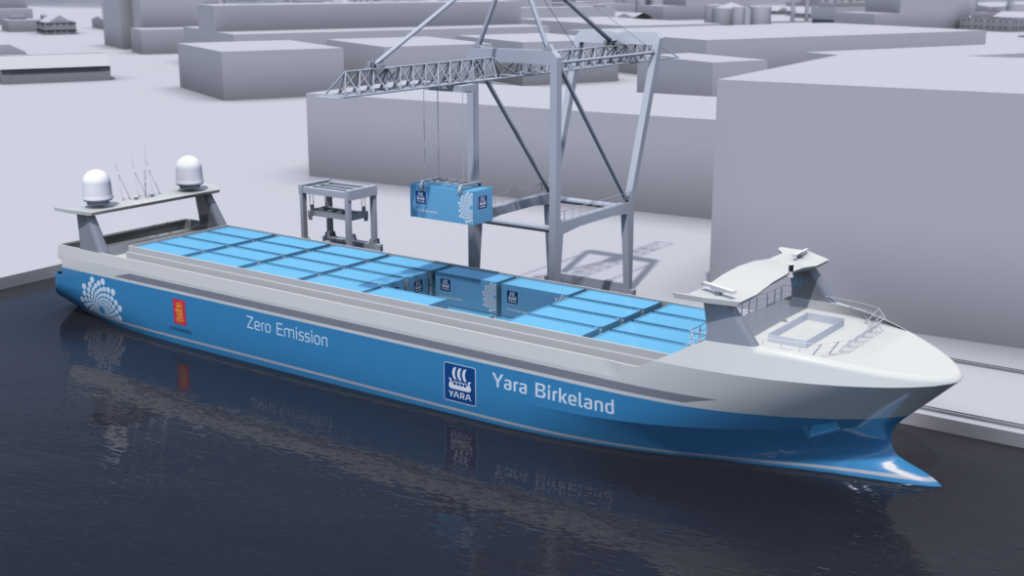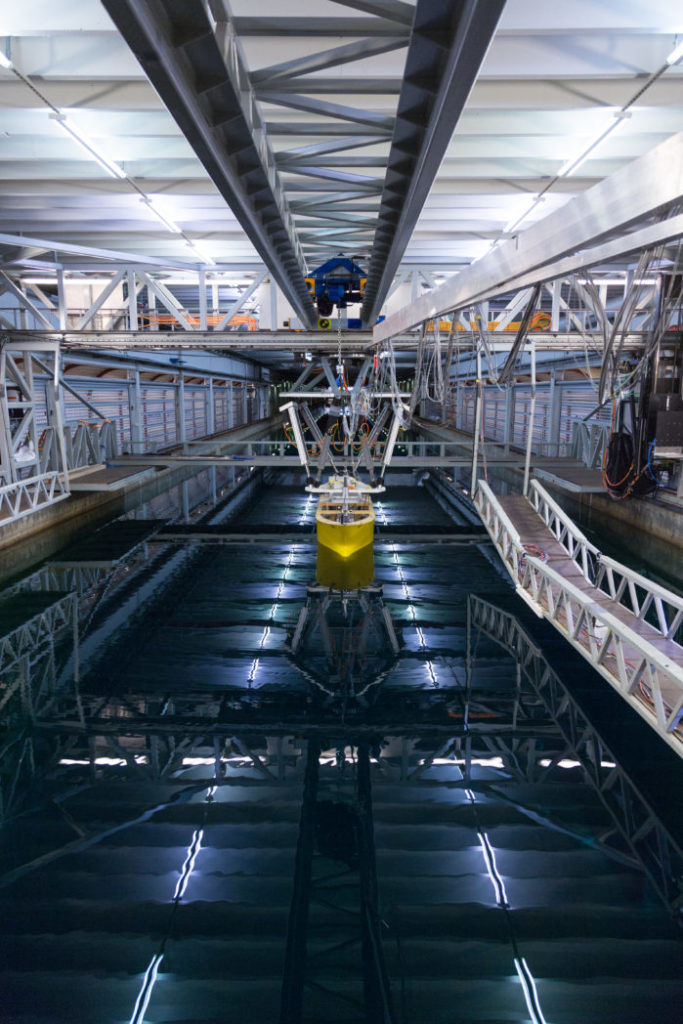Each year, 40,000 diesel-fuelled lorries pass through the gates of Yara’s fertiliser manufacturing plant in Porsgrunn. In a few years time, all these loads will be transferred to an autonomous ship. A battery driven container vessel, the Yara Birkeland. This is good news for all those concerned about local noise and air pollution, but the real benefit will be seen when such vessels are being mass-produced and making a global contribution to reducing the effects of climate change.
At SINTEF, shipping by autonomous vessels is an important field of research.

Unmanned vessels can be built entirely differently from current ships, and can be integrated into new transport systems that will be safer, more energy-efficient, and less expensive than today’s. Different kinds of autonomous ships will make an important contribution towards the development of future emissions-free transport systems. Electrically-propelled and totally silent, they will exploit to a much greater extent the potential of our seaways as transport arteries, and will remove noise and particle pollution from our roads.
Bulding an autonomous ship demands unique competence
SINTEF has a technological breadth of scope that enables us in practice to work in the majority of technical fields linked to the development of such vessels. SINTEF Digital is currently working on sensor systems, communication and navigation. SINTEF Technology and Society is interested in the transport systems, logistics and safety aspects, while SINTEF Ocean is working with vessel and system design, including links to support systems onshore. Working together, we offer unique expertise in the complex system solutions that the field of autonomous shipping requires.

Norwegian initiative can lead to global revolution
The Yara Birkeland is a good example of the revolution that autonomous vessels can generate in the transport sector. Yara itself, as owner of the product, has taken the initiative to construct the vessel, and the Yara Birkeland will become part of a wholly integrated and automated goods transport chain from the manufacturing plant to international cargo vessels.
This is typical of new solutions we will be seeing more of in the near future.
At present, development is progressing fastest in the field of smaller, battery-driven, vessels and focus is currently on reducing lorry transport onshore in favour of seagoing vessels.
It is also self-evident that such systems will be less costly, or in any event no more expensive, than the use of vehicles onshore. We are also seeing interest for autonomous and automated vessels that can travel over longer distances, although at present we are holding our cards close to our chest.

0 comments on “Autonomous ship will remove 40,000 lorries from our roads”